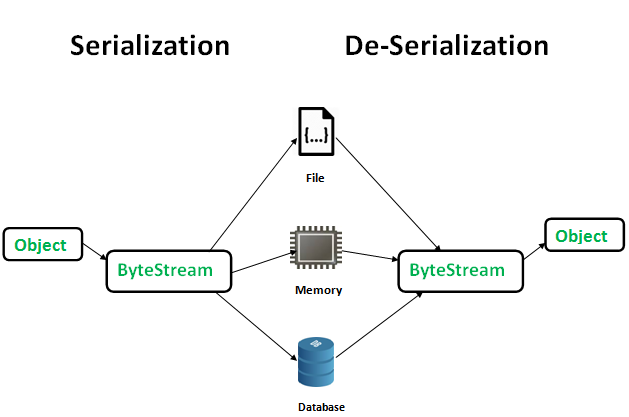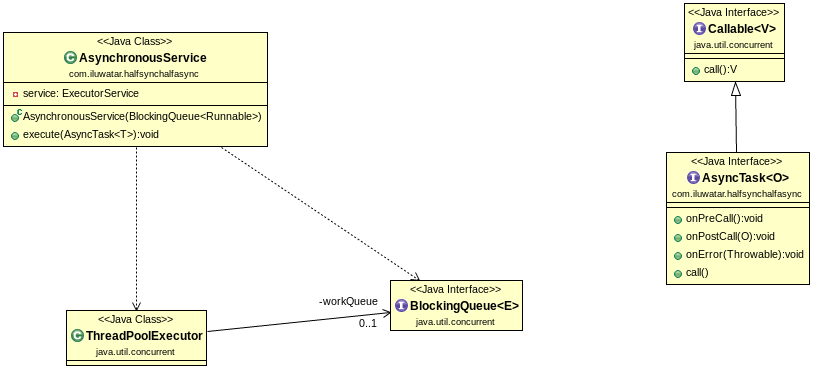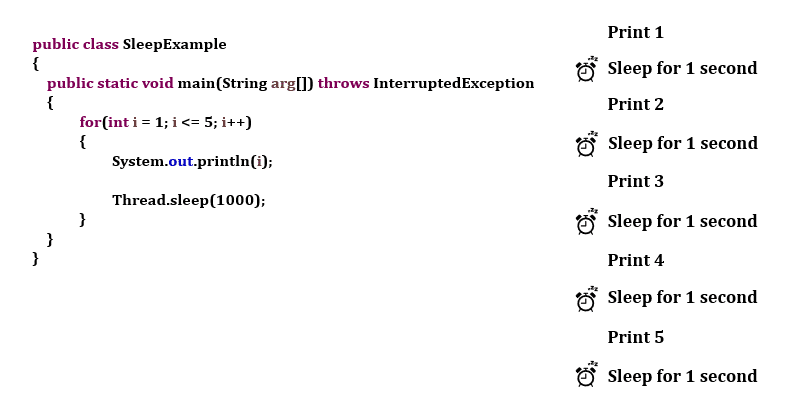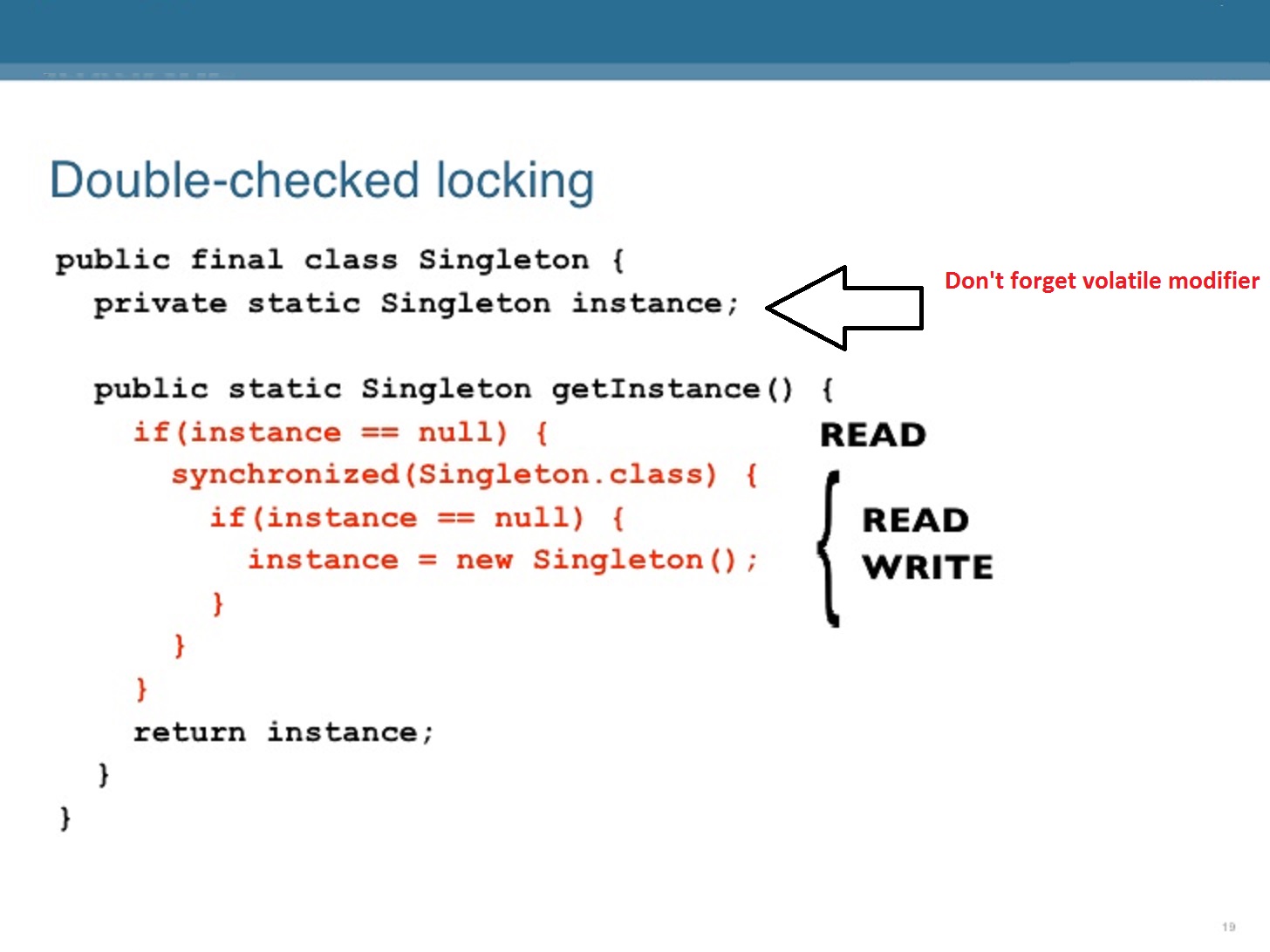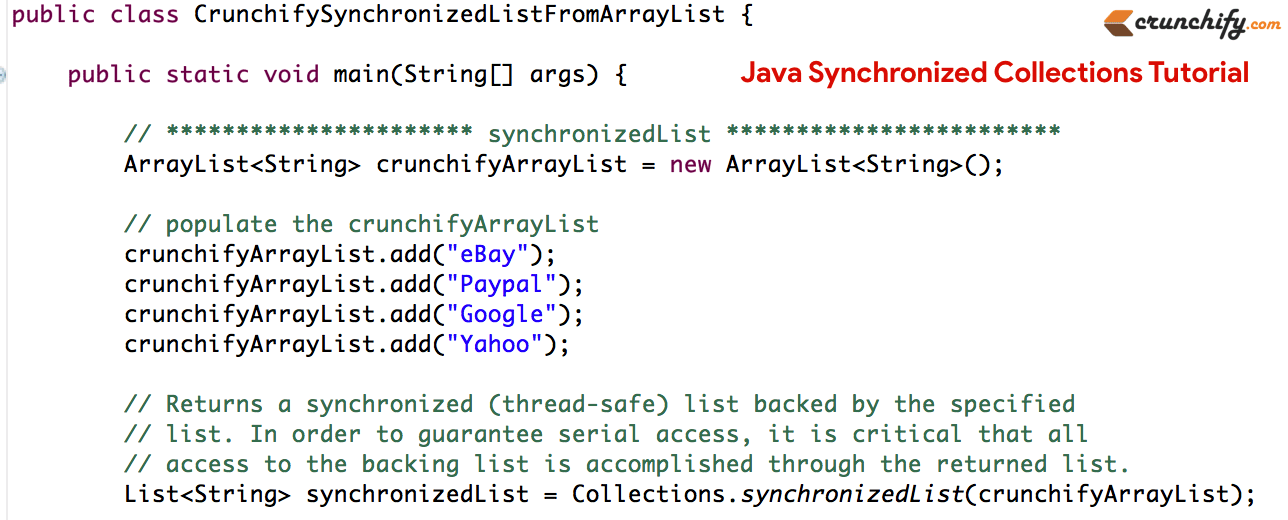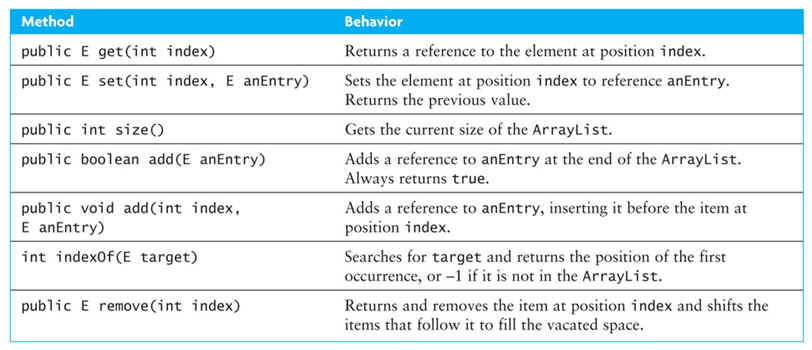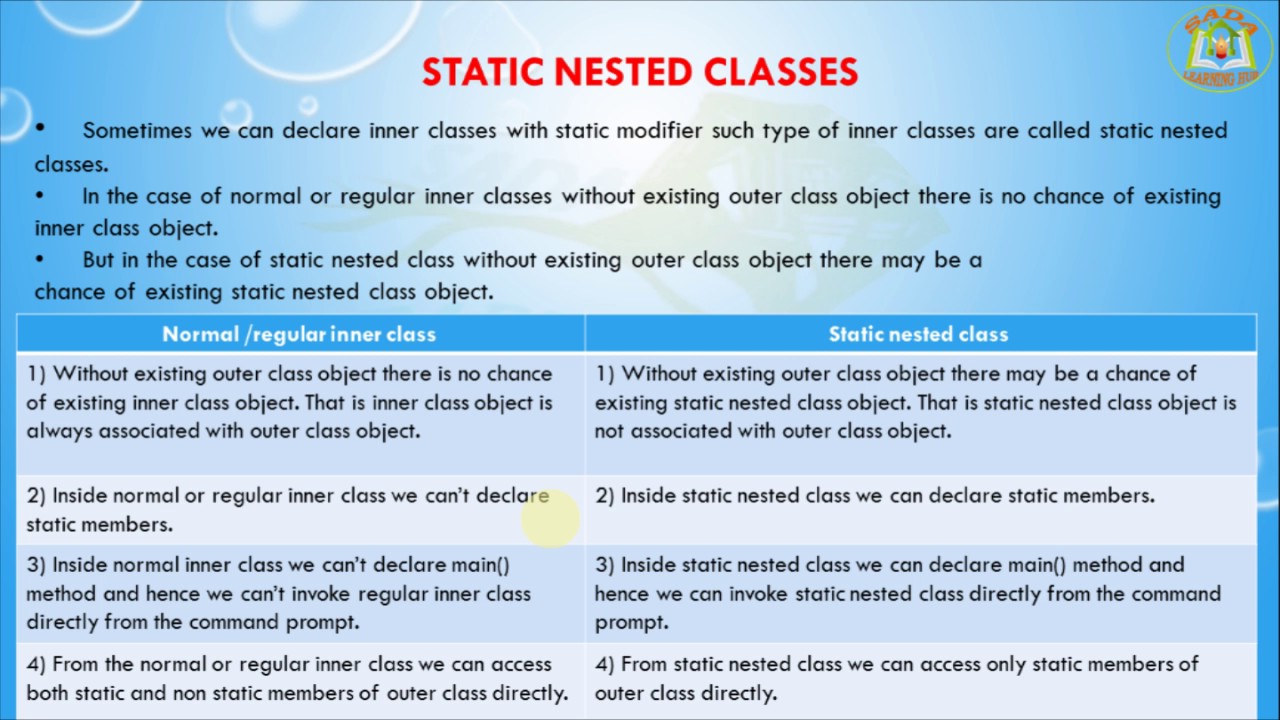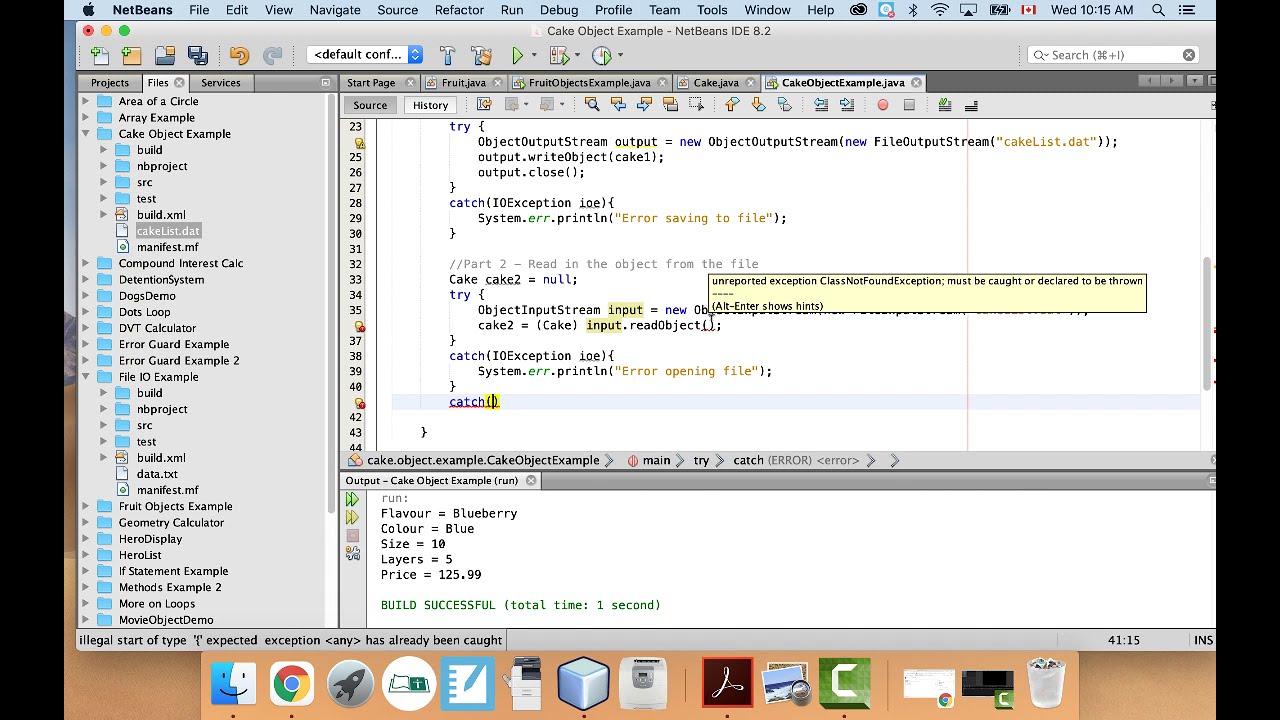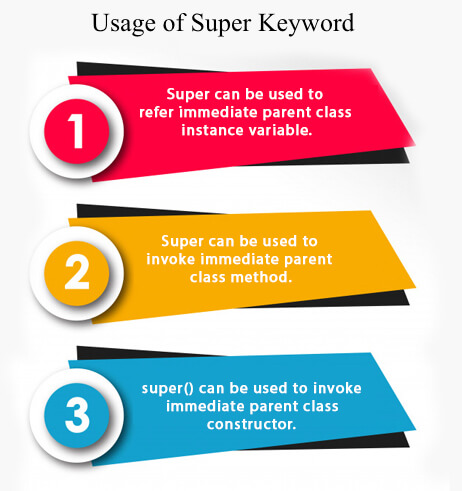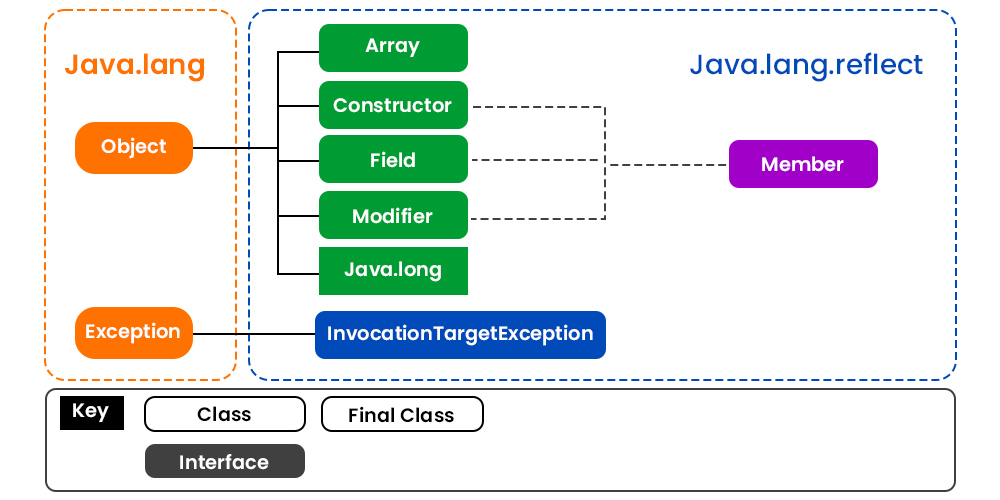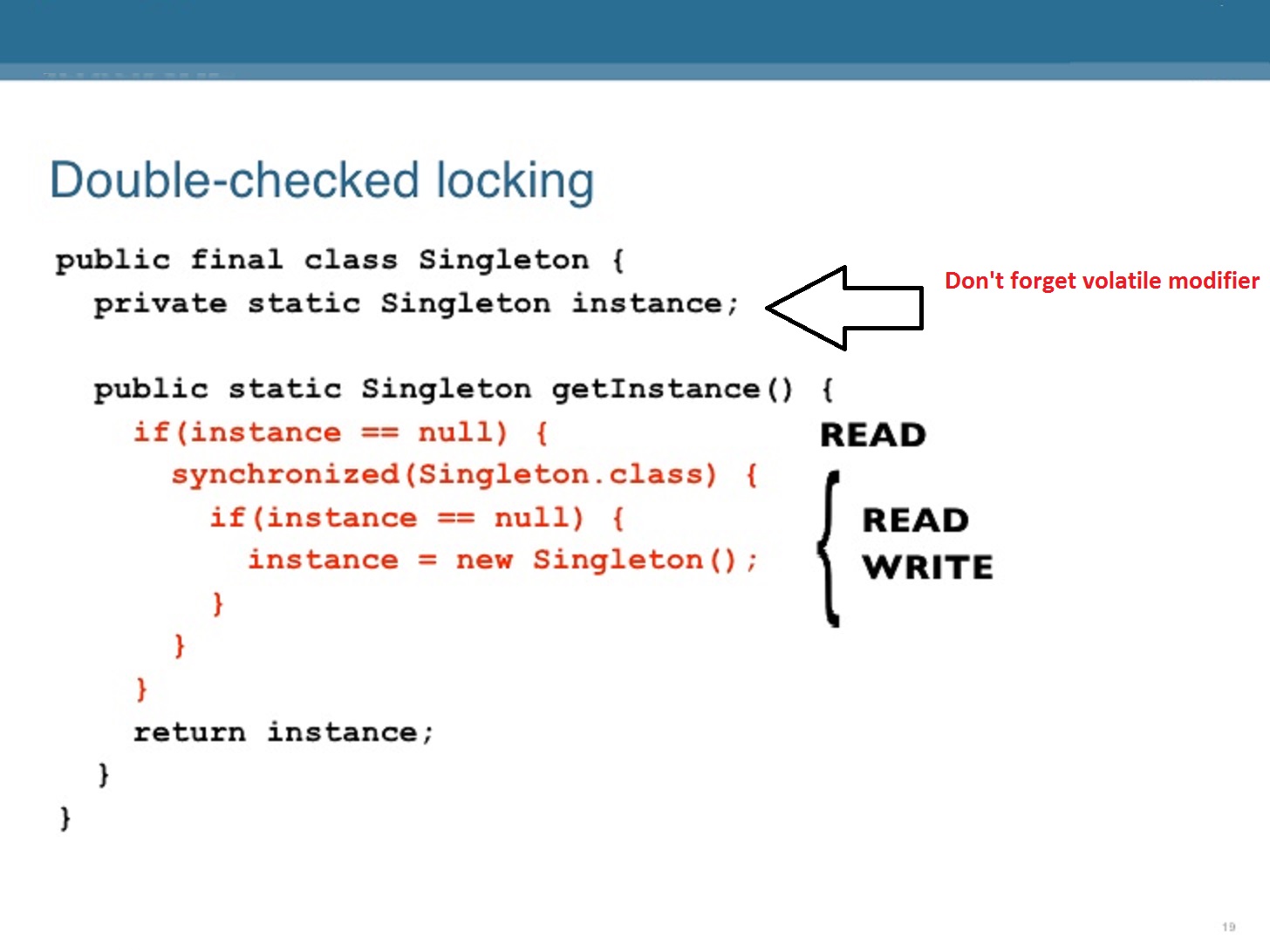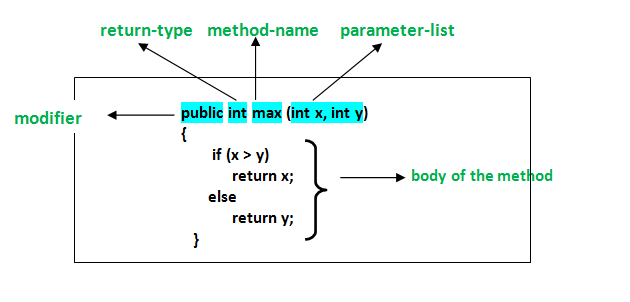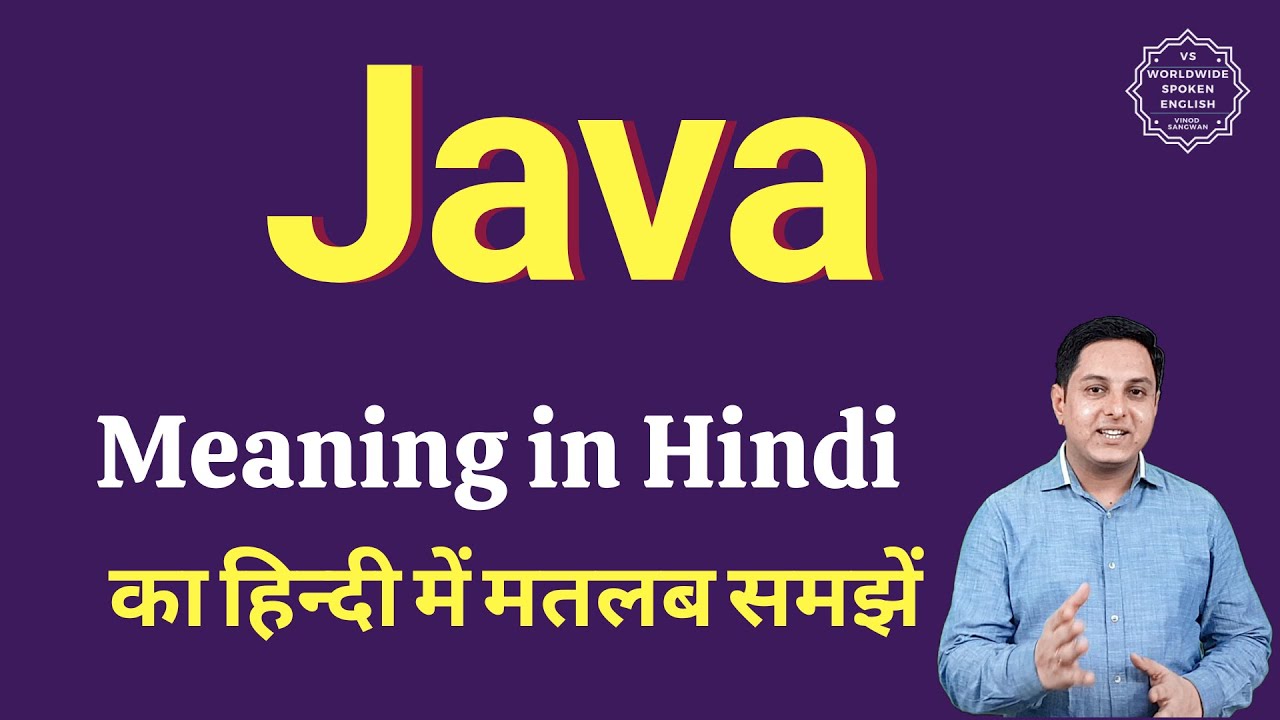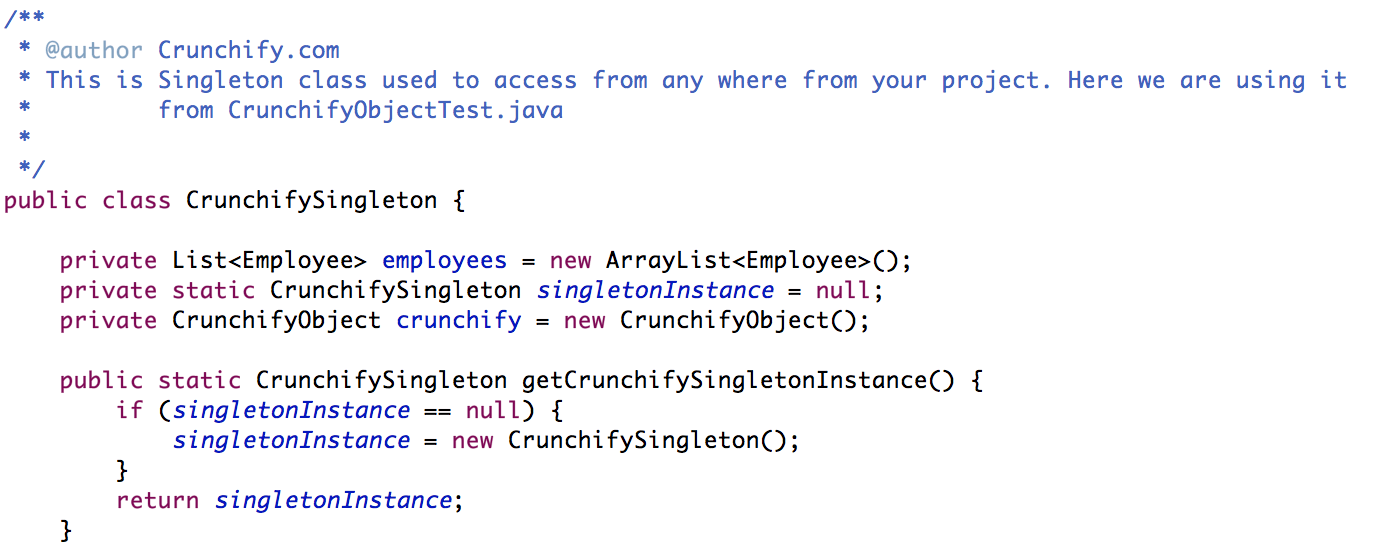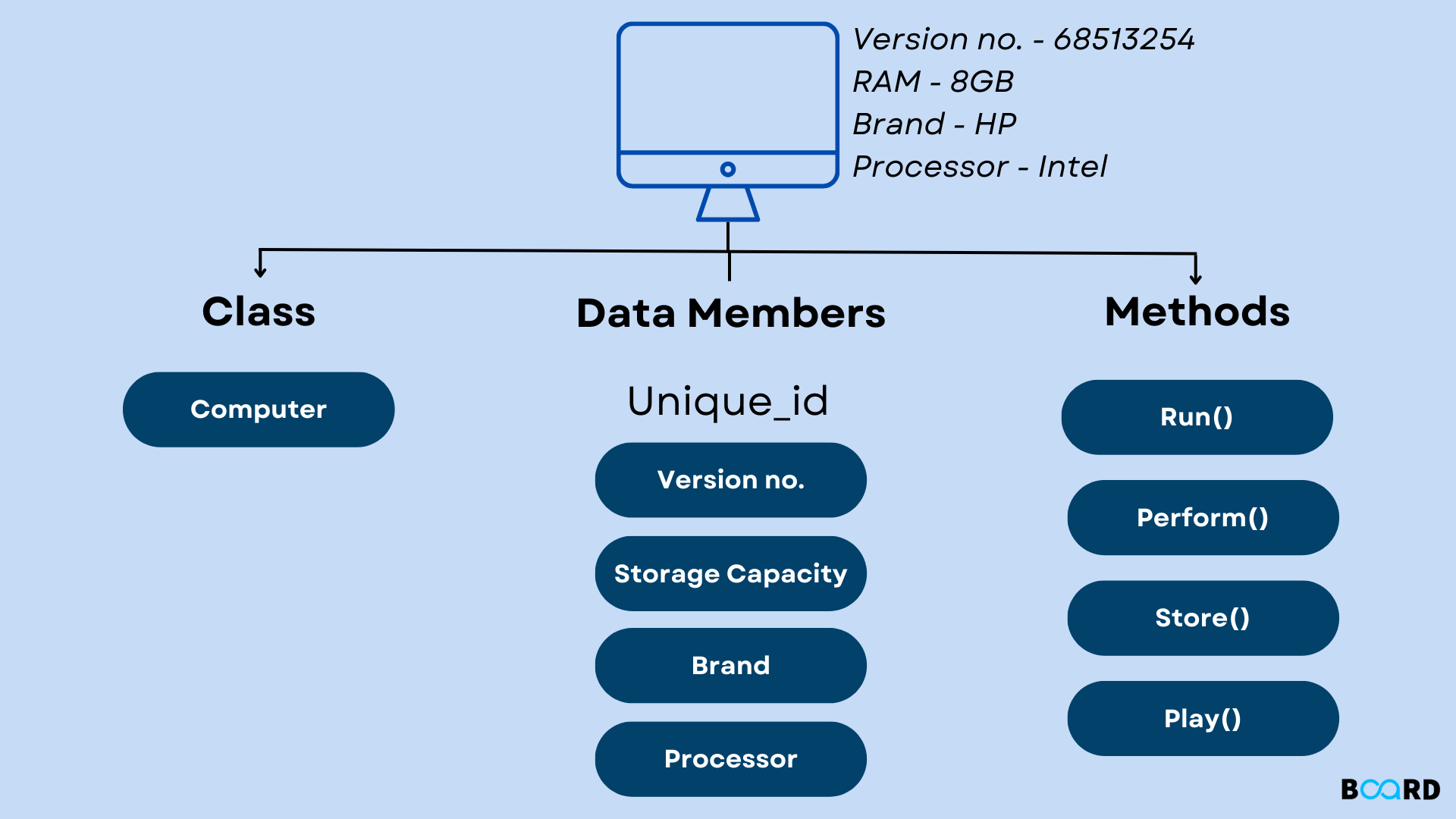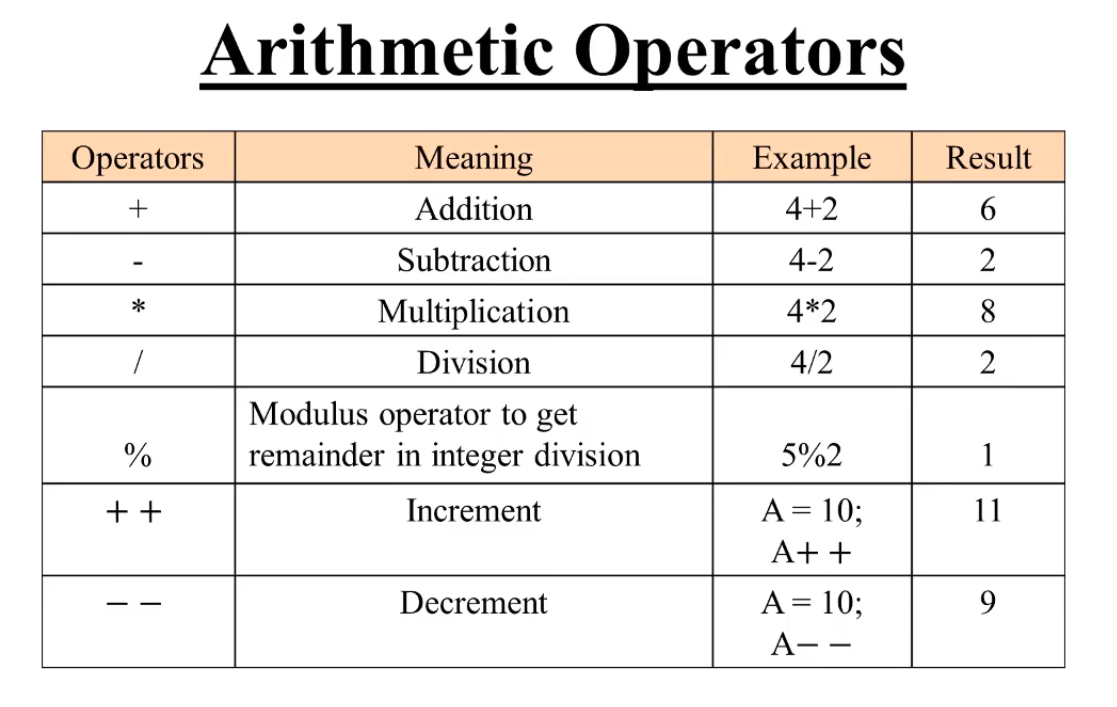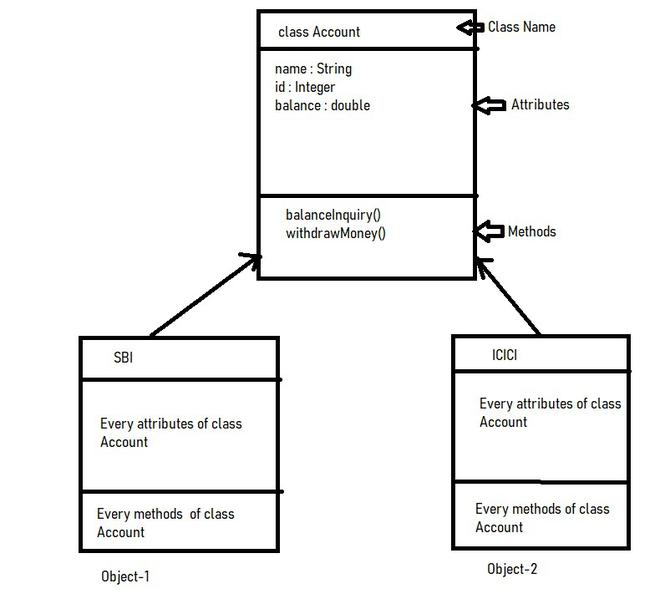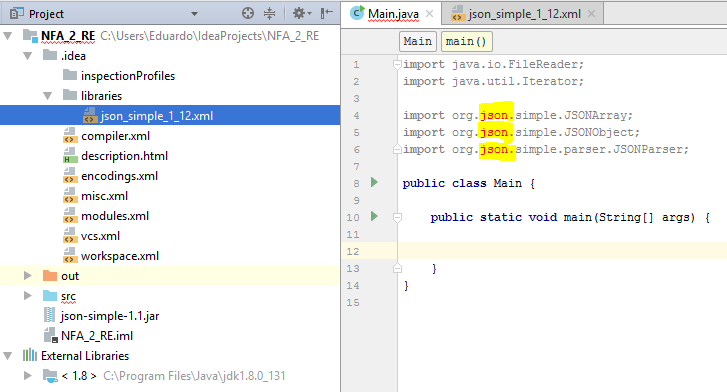relational operators in java
relational operators in java
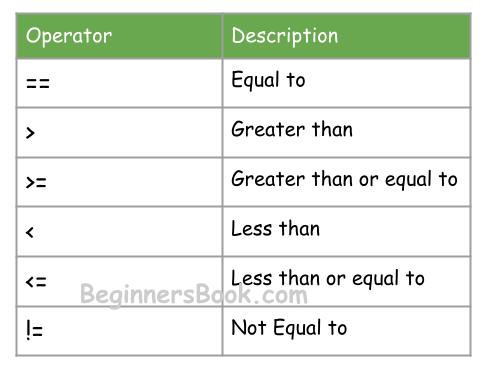
Here is the information you requested:
Relational Operators in Java:
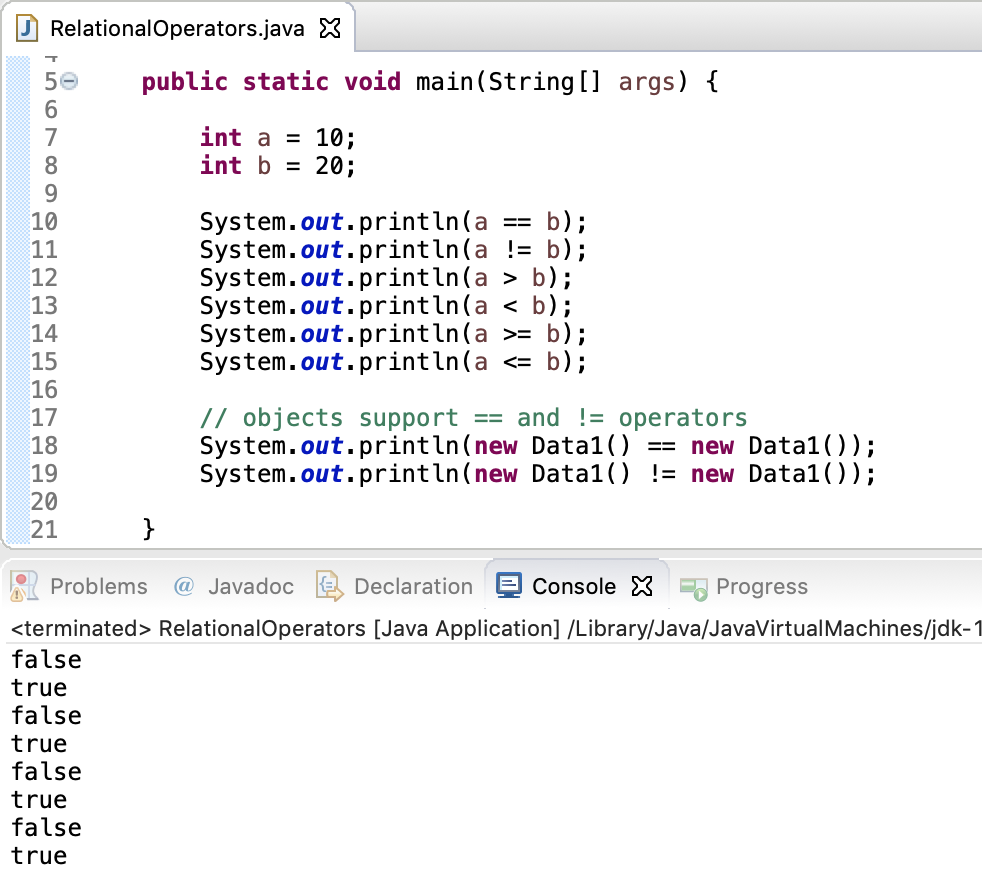
In programming languages like Java, relational operators are used to compare two values and determine whether they are equal, less than, greater than, or have any other relationship with each other. These operators return a boolean value indicating whether the comparison is true or false.
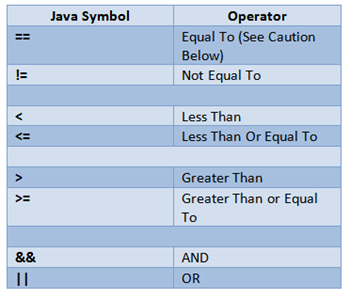
The following are the main relational operators available in Java:
Equal To (==): This operator checks if the left-hand operand is equal to the right-hand operand.Example: x == y returns true if the values of x and y are the same, and false otherwise.
Example: x != y returns true if the values of x and y are different, and false otherwise.
Example: x > y returns true if the value of x is greater than the value of y, and false otherwise.
Example: x < y returns true if the value of x is less than the value of y, and false otherwise.
Example: x >= y returns true if the value of x is greater than or equal to the value of y, and false otherwise.
Example: x <= y returns true if the value of x is less than or equal to the value of y, and false otherwise.
Examples:
int x = 10;int y = 5;
// Using relational operators
boolean isEqual = x == y; // Returns false
boolean isNotEqual = x != y; // Returns true
boolean isGreaterThan = x > y; // Returns true
boolean isLessThan = x < y; // Returns false
System.out.println(isEqual); // Outputs: false
System.out.println(isNotEqual); // Outputs: true
System.out.println(isGreaterThan); // Outputs: true
System.out.println(isLessThan); // Outputs: false
In summary, relational operators are used to compare two values and determine their relationship. They are useful for making decisions based on conditions and can be found in many programming languages including Java.
types of operators in java with examples
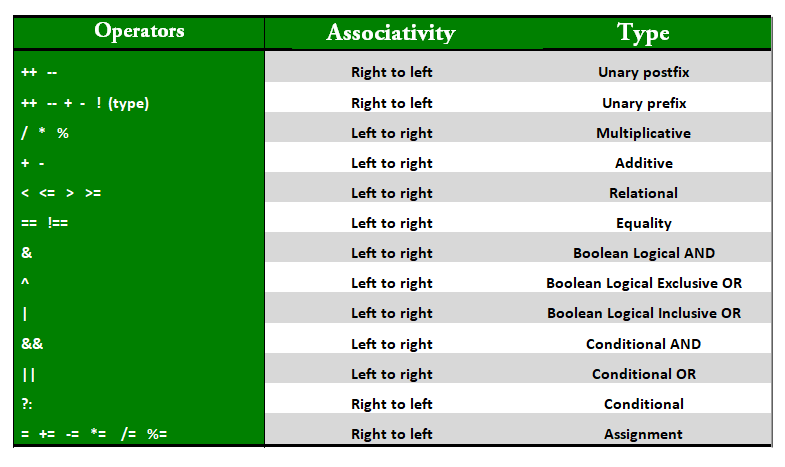
I'd be happy to help!
In Java, there are several types of operators that can perform various operations on variables and values. Here's a comprehensive list of the different types of operators, along with some examples:
Arithmetic Operators
These operators are used for mathematical operations like addition, subtraction, multiplication, and division.
Addition:a + b (Example: int x = 5; int y = 3; System.out.println(x + y);)
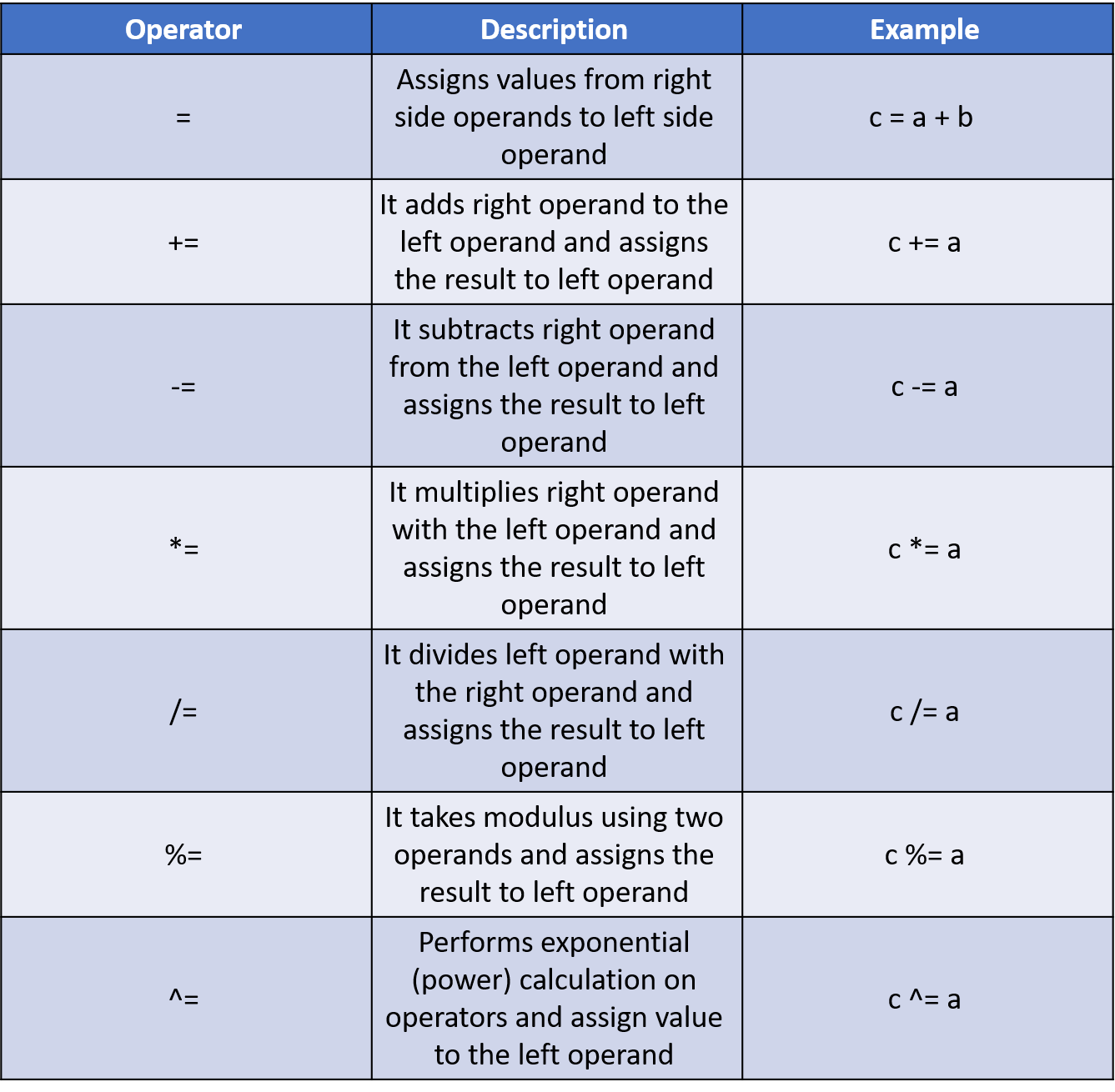
a - b (Example: int x = 10; int y = 2; System.out.println(x - y);) Multiplication: a * b (Example: int x = 4; int y = 3; System.out.println(x * y);) Division: a / b (Example: double x = 10.0; double y = 2.0; System.out.println(x / y);) Note that division by zero will throw an ArithmeticException. Modulus (remainder): a % b (Example: int x = 17; int y = 5; System.out.println(x % y);)
Comparison Operators
These operators are used to compare values and determine whether they're equal, greater than, less than, etc.
Equality:a == b (Example: int x = 10; int y = 10; if (x == y) System.out.println("Equal");) Inequality: a != b (Example: int x = 20; int y = 15; if (x != y) System.out.println("Not equal");) Greater than: a > b (Example: int x = 25; int y = 10; if (x > y) System.out.println("Greater");) Less than: a < b (Example: int x = 5; int y = 15; if (x < y) System.out.println("Less");) Greater than or equal to: a >= b (Example: int x = 20; int y = 10; if (x >= y) System.out.println("Greater or equal");) Less than or equal to: a <= b (Example: int x = 15; int y = 20; if (x <= y) System.out.println("Less or equal");)
Logical Operators
These operators are used for conditional statements and logical operations.
AND (logical conjunction):a && b (Example: int x = 10; int y = 5; if (x > y && x % 2 == 0) System.out.println("Both conditions true");) OR (logical disjunction): a || b (Example: int x = 15; int y = 20; if (x < y || x % 3 == 0) System.out.println("At least one condition true");) NOT (logical negation): !b (Example: boolean x = false; if (!x) System.out.println("Not true");)
Assignment Operators
These operators are used to assign values to variables.
Simple assignment:a = b (Example: int x = 10; x = 15; System.out.println(x);) Addition assignment: a += b (Example: int x = 5; int y = 2; x += y; System.out.println(x);) Subtraction assignment: a -= b (Example: double x = 10.0; double y = 3.0; x -= y; System.out.println(x);) Multiplication assignment: a *= b (Example: int x = 4; int y = 2; x *= y; System.out.println(x);) Division assignment: a /= b (Example: double x = 20.0; double y = 4.0; x /= y; System.out.println(x);) Modulus assignment: a %= b (Example: int x = 17; int y = 5; x %= y; System.out.println(x);)
Bitwise Operators
These operators are used for bitwise operations.
AND (bitwise conjunction):a & b (Example: int x = 15; int y = 3; System.out.println(x & y);) OR (bitwise disjunction): a | b (Example: int x = 10; int y = 6; System.out.println(x | y);) XOR (bitwise exclusive OR): a ^ b (Example: int x = 15; int y = 3; System.out.println(x ^ y);) NOT (bitwise negation): ~b (Example: int x = 10; System.out.println(~x);)
Shift Operators
These operators are used for shifting the bits of a number.
Left shift:a << b (Example: int x = 2; int y = 1; System.out.println(x << y);) Right shift: a >> b (Example: int x = 16; int y = 4; System.out.println(x >> y);)
These are the different types of operators in Java, along with some examples to illustrate their usage. Remember to always use the correct type of operator and variable for your specific programming needs!
